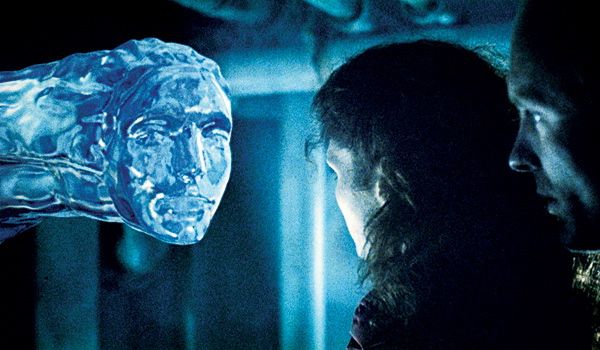I own more movies than I do brain cells, by which I mean I have a bad habit of buying films I’ve never seen, based solely on recommendations. Sometimes this yields gold, other times you end up paying human money for something that’s not worth it. With the whole country in lockdown, I figured this was as good a time as any to start making my way through the unwatched section of my library, going in alphabetical order, of course.
I’ll be writing about each film here, as often as I can. A note: the alphabetical order will be disrupted occasionally, if I’m, say, making my way through a boxed set of films. I’m not going to watch Sanjuro before Yojimbo, even though the alphabet dictates that I should. Also, if any movie I watch is going to be covered in 31 Days of Fright or Every Best Picture, I’ll still write about it, but it just won’t show up until those columns update. Sorry if you were just champing at the bit to get my take on 1957’s The Bad Seed; you’ll just have to wait until October.
We begin, appropriately enough, with James Cameron’s The Abyss. It’s tempting, of course, to liken our current state to that of falling into an abyss, but that’s a bit hackneyed, although not completely out of line with Cameron’s film. The Abyss has a lot on its mind; too much, it could be argued, which helps to explain its nearly three-hour runtime. I don’t shy away from long movies, but this is where you experience the phenomenon of Cameron Bloat, or CB. CB occurs when Cameron just has too much on his mind, and no one around to tell him to truncate anything.
Terminator 2: Judgment Day and True Lies are lean and mean, all killer no filler, because they don’t suffer from CB. They’re pure popcorn, but it’s unfair to limit a filmmaker in what they choose to express. The Abyss is about a lot of things, and it can occasionally be a mess, but it feels like Cameron’s most personal work, even if the production of the film caused him to devolve into a latter-day Fritz Lang, making the shoot so tortuous that cast and crew took to calling the film “The Abuse.”
After a shoot that notorious and difficult – much of the underwater acting was done by actors, not stunt people – you have to deliver a truly remarkable film. Is The Abyss remarkable? In some ways, sure. It’s enrapturing, and occasionally beautiful. It also suffers from some pacing problems; this movie is about as long as Interstellar but feels much longer (that’s also because Christopher Nolan is better at pacing than is Cameron). The performances help a lot, notably that of Ed Harris, maybe one of the most watchable actors in history. As Virgil “Bud” Brigman, Harris plays to his strengths: irritable, stubborn, secretly sentimental. By the time he makes what we believe to be the ultimate sacrifice at the film’s end, it’s believable, and the act doesn’t feel redemptive but necessary.
Mary Elizabeth Mastrontonio has nice development as Bud’s soon-to-be ex-wife, Lyndsey. She and Bud lock horns for the first act, but their feelings are gradually rekindled. Cameron wrote Lyndsey and Bud as stand-ins for himself and his estranged wife, Gale Ann Hurd, with whom he was going through a divorce. Knowing that, it’s hard to not find some of the scenes between Bud and Lyndsey too on-the-nose, like when a door almost slams on Bud’s hand, only to be stopped by his wedding ring. That being said, it’s hard not to be affected by scenes in a similar vein. Near the end, Bud can only communicate through text, and when he sends her LOVE YOU WIFE, you gain a newfound appreciation for Cameron’s skills as an emotional manipulator. That’s not a condemnation; Spielberg, for instance, is a master of emotional manipulation in his films.
The most fascinating character, unfortunately, is also the most inconsistently written. Lt. Coffey, a Navy SEAL played by Michael Biehn, is a suitable heavy for the film. He undergoes a transformation from company man to all-out psychotic, and while Biehn’s performance is commendable (and his mustache even more so), it really feels like The Abyss isn’t sure what to do with its ostensible villain. By the time Coffey is killed, there’s still an hour of the movie left.
That’s forgivable, though, because that’s where The Abyss gets truly mesmerizing. Amid all the tension of possibly starting WWIII, and Coffey losing his bearings, The Abyss also includes aliens, dwelling in an inconceivable city-cum-starship at the bottom of the ocean. And credit to Cameron the visual storyteller: the ocean is terrifying in this film. It’s not because of what Cameron shows us, but because of what he doesn’t. Our heroes are fighting for their lives and sanity atop an unfeeling chasm of infinite nothingness (read Nick Cutter’s The Deep after watching this if you want to induce some serious thalassophobia).
The Abyss is a mixed bag at times, but it’s admirable to see Cameron pouring his heart out in such an odd way. It marks Cameron’s foray into exploration, both physical and digital; it’s an easy progression from The Abyss to Ghosts of the Depp and Avatar. The shoot wasn’t easy, but showing one’s heart seldom is. For Cameron, it’s at the bottom of the sea.

